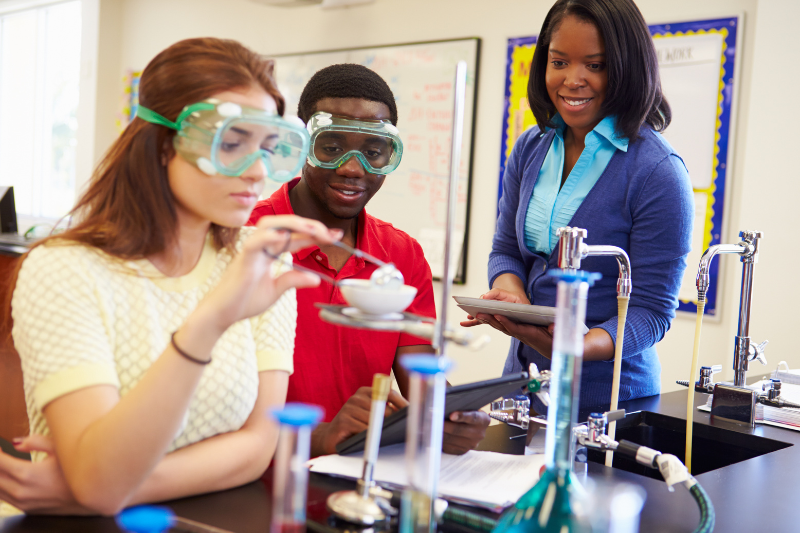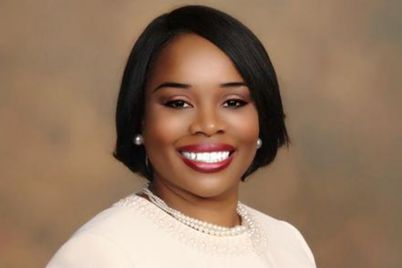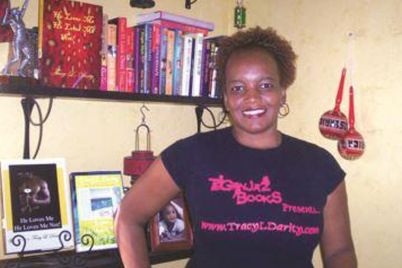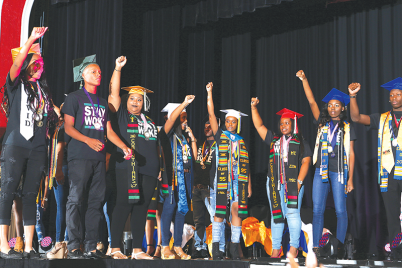A new $75,000 grant from Duke Energy will allow USF’s St. Petersburg campus to provide programming that supports underrepresented students in excelling and finding pathways into science, technology, engineering and mathematics (STEM) fields.
ST. PETERSBURG — When College of Education Dean Anthony Rolle was in high school, a teacher introduced him to a program that solidified his interests in the fields of math and science.
The program was the Mathematics, Engineering, Science Achievement (MESA) Schools Program, an award-winning program that creates academic opportunities and career pathways for students from minority and low-income populations. Rolle largely credits it with providing a pipeline to enter a lucrative career and being able to see himself in that field.
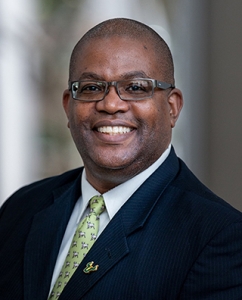
College of Education Dean Anthony Rolle
“The MESA program was – and is – quite visionary… gave me opportunities that I would not have experienced otherwise,” he said. “A major aspect of the program provided quarterly field trips to specific industries that paired visiting students with employees from the same high school, so students could see themselves in that industry.
“As students matured to high school juniors and seniors, these same corporations provided paid summer internships. In fact, my first full-time summer job was at an IBM Lab, working as a novice computer program intern. Not bad for a kid with a hard-working single mom.”
A new $75,000 grant from Duke Energy will allow USF’s St. Petersburg campus to provide the same opportunities that Rolle experienced by establishing programming that supports underrepresented students in excelling and finding pathways into science, technology, engineering and mathematics (STEM) fields.
As part of the MESA chapter that was launched within USF’s College of Education earlier this year, funding will go towards initiating partnerships with schools, developing curriculum, establishing STEM-focused clubs and recruiting female and minority students in Pinellas County.
“Many students may be fascinated with STEM but don’t feel that STEM is a career for them. But we need individuals from every walk of life to participate in these careers,” said David Rosengrant, interim director of education at the St. Petersburg campus and a professor of STEM education. “We hope this program will make kids more knowledgeable and excited for these fields, so they feel that they belong in this realm and will develop abilities to become successful in college and beyond.”
MESA, which launched in 1969 as a pre-college intervention and solutions program in California, has served more than 49,000 students from over 350 school districts across the country. USF is the first institution to host a chapter of the program in Florida and only the third in the eastern U.S. Programming will initially be directed at middle schools in Pinellas County, with plans to expand to grades K-12 in the six counties surrounding Tampa Bay in the future.
“We envision a more equitable country where underrepresented students of color are empowered to achieve their dreams through mastery of STEM disciplines to create prosperity in our communities,” said Dwight Carr, EdD, chair of MESA USA and executive director of the Maryland MESA chapter.
“On behalf of MESA USA, we welcome the University of South Florida and Florida MESA as new national partners that will help us to achieve our mission and help us to move closer toward our vision of a more equitable STEM ecosystem for today’s students.”
The USF team, led by Rolle and Rosengrant, will work with local schools to attract underrepresented populations to career opportunities in STEM fields. Students in the program will have access to STEM enrichment activities, mentorship programs and career shadowing opportunities with technology-based businesses from software development to cybersecurity.
“My background is in physics, and the number of individuals in physics that are not white male is abysmally small. It’s a problem that we need to address,” Rosengrant explained.
USF’s MESA chapter is currently at the St. Petersburg campus and will grow to include the Tampa and Sarasota-Manatee campuses. The chapter is expected to open its admissions application next school year and hopes to attract a diverse group of students with the goal of providing a strong basis in STEM and data-based critical thinking skills, preparing them to pursue a college degree and eventually a career.
“As a young person, I said if I ever had the chance to create such a program like MESA, that I would,” Rolle said. “The academic and economic opportunities the USF MESA chapter will create as the program matures will be instrumental in supporting future STEM students and educators of STEM subjects as well as allow local corporations and organizations the opportunity to invest in their community and the development of potential future employees, managers and CEOs at their companies.”
For more information, please contact David Rosengrant at rosengrant@usf.edu.

